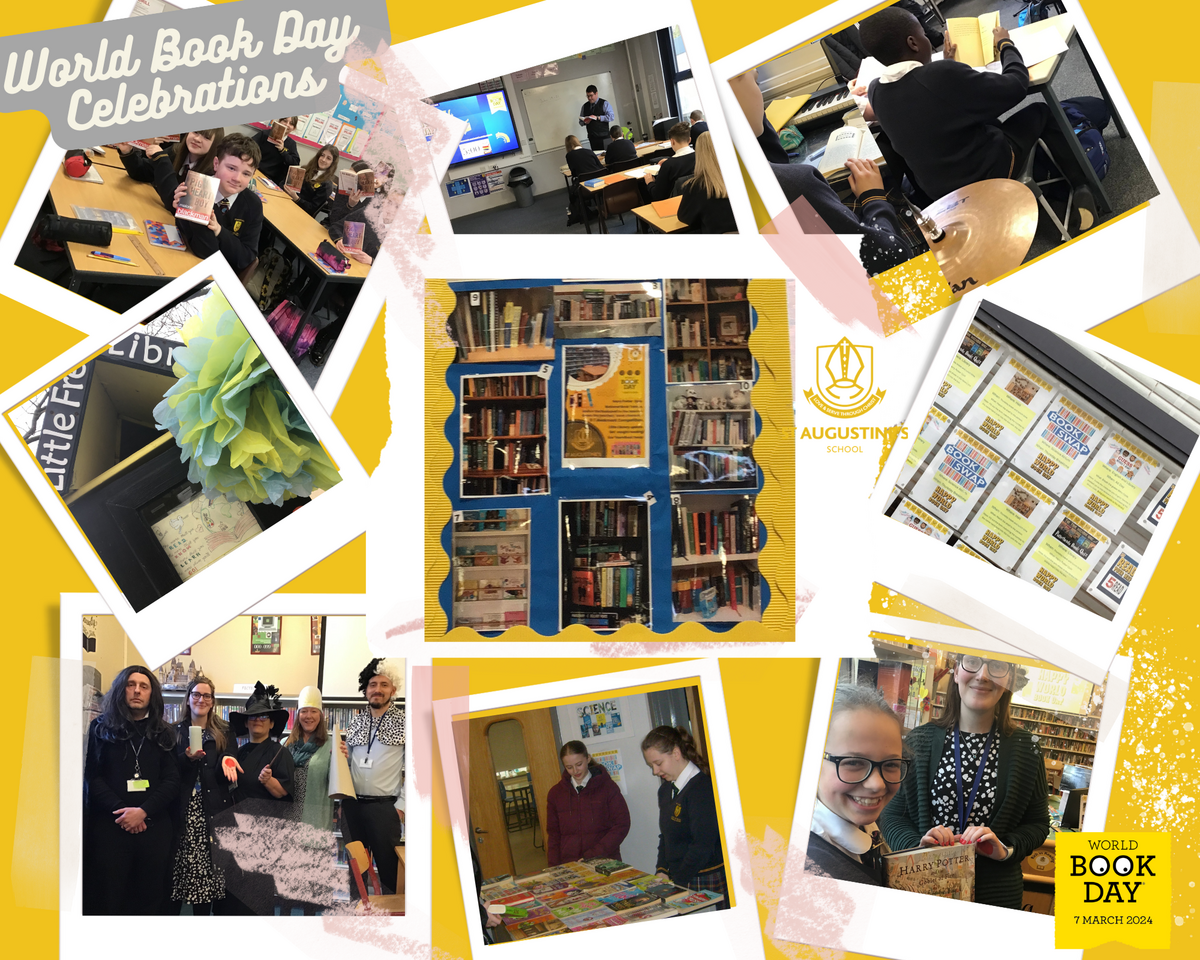Library
The library is a bespoke space which provides students with library resources as well as an IT learning facility and club/events space.
READING AND LITERACY
Ethos and culture
At St Augustine’s we are passionate about reading. We understand the importance of being a good reader, not just to access the curriculum, but as a socially connective and enjoyable experience for every student. We believe in the ‘Power of Everyone’ and strive to ensure that every student, parent and staff member work together to immerse themselves in the enjoyment of reading and understand the far-reaching benefits of the mastery of reading.
“Literacy is fundamental for success in school and later life. Students who cannot read, write and communicate effectively are highly unlikely to access the challenging academic curriculum in secondary school.” - EEF, Improving Literacy in Secondary Schools (2021)
We recognise many young people don’t find reading enjoyable, rewarding or instructive because they don’t read fluently or because they can’t find texts that inspire, interest or challenge them. In some cases, students will not be able to fully access opportunities in the adult world because of their struggles with reading, making it vital to address these barriers.
We have worked hard as a school to foster a culture of reading and have many exciting initiatives and support programmes in place and emerging strategies in order to ensure every student who leaves at the end of Year 11 feels a sense of success.
Aims
We aim to ensure that all students leave St Augustine’s confident in their literacy, able to comprehend complex, academic texts and write maturely, cohesively and accurately. Every member of staff takes responsibility for promoting high standards of literacy within the school and explicitly teaches literacy skills in lessons across the curriculum.
Reading for pleasure
Reading for pleasure is possibly the single-most important activity your child can do to improve achievement in school. Educational research shows that reading helps cognitive development. Linked to this is the fact that reading is the best way to improve vocabulary, essential for success in every subject.
Reading also has social and emotional benefits. It increases self-esteem and studies show that students who read are more empathetic. Growing up is tough - reading can help young people explore complex problems from the safe, fictional world of a book.
We have a number of book groups, including our annual Carnegie Group, which promote engagement with reading and the library. The library is well stocked with both fiction and non-fiction texts and is open throughout the school day. Pupils are expected to have a book with them at all times as part of their school equipment.
Reading for Learning
Academic reading stimulates, inspires, challenges and helps students decode and understand the world around them. Ofsted highlighted that: ‘Schools should establish a rigorous approach to reading in order to build confidence and enjoyment’.
At St Augustine’s we are dedicated to ensuring every student has the skills needed to access the curriculum with confidence. The development of reading skills is given a high priority in every subject and we ensure that a wide range of academic vocabulary is studied and utilised in all subjects across the curriculum. Throughout both key stages pupils are explicitly taught command words expected at GCSE level in all subjects, alongside the technical vocabulary required to access academic success.
At St Augustine’s we monitor and track the reading ages of pupils through the Accelerated Reader programme. This enables us to scaffold learning where needed allowing all pupils to have access to the full curriculum. Alongside this, identified pupils will be targeted for intervention to enable their level of literacy to become equal to that of their peers
Accelerated Reader Log in
Follow the link below to access your AR account for quizzing and reviews:
Library & Literacy Coordinator
Ruchelle Gomersall
Library books
- All books borrowed from the library must be checked out at the librarian’s desk. Books are normally loaned for a short period, but can renewed where necessary.
- Books should be returned or renewed on time—all books issued to the borrower remain their responsibility until they are returned on the computer system.
Library opening hours:
Opening times may change due to unforeseen circumstances or school events. Students will be informed wherever possible of any changes.

